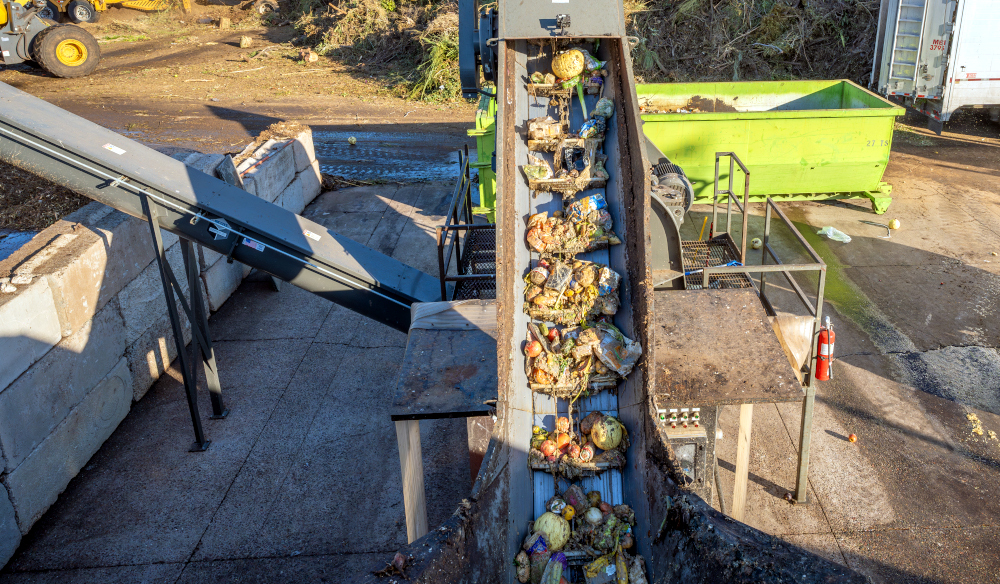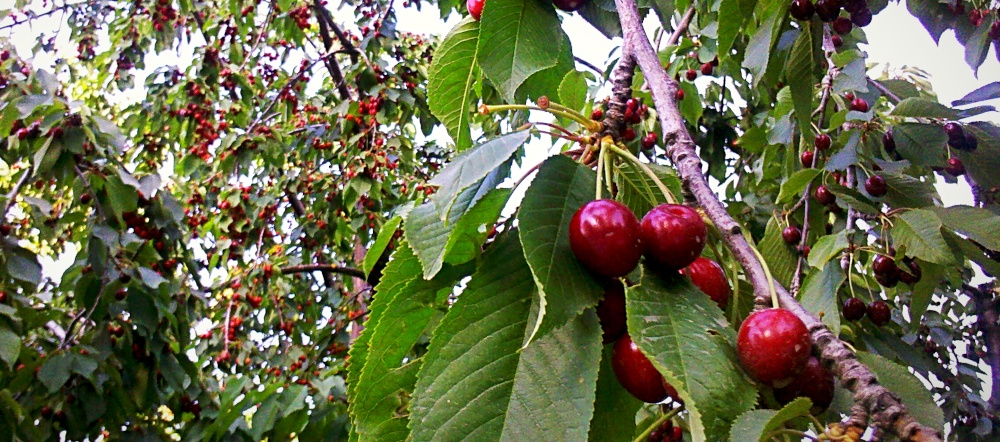Walmart partners with ‘depackaging’ innovator to improve food-waste recycling
 Image credit: Denali
Image credit: Denali
Walmart has announced the latest facet of its
growing efforts to eliminate food waste: A collaboration with
Denali — the nation’s leading and largest recycler
of organic materials — to deploy the company’s “depackaging” services to help
improve the food-waste recycling process at more than a thousand Walmart and
Sam’s Club locations nationwide.
Denali’s depackaging technology and processes
separate food from packaging materials such as plastic and cardboard — producing
a cleaner stream of organic material that can be turned into animal feed,
compost
or converted into energy with anaerobic
digesters.
The depackaging services help avoid the process of manually separating food from
its packaging – making it easier to recycle and reuse food waste while freeing
up time for retailers. Walmart is one of the first retailers to leverage the
newly implemented depackaging capabilities at scale.
Through the partnership with Denali, Walmart aims to help drive operational
efficiencies for its enterprise associates; based on early testing, the program
has increased the volume of potentially reusable organic content recovered from
participating Walmart and Sam’s Club locations by more than 60 percent and
reduced their compactor trash by an estimated 12 percent.
As of today, the program has launched in over 1,400 Walmart and Sam’s Club
locations in more than 16 markets across the country — including Dallas,
Houston, Indianapolis, Phoenix, Philadelphia and Washington
DC; and cities across Connecticut, Massachusetts, New Hampshire
and Rhode Island – with rollout to continue nationwide into 2025.
For Walmart, this initiative is an example of how it is tackling operational
waste through projects aimed at improving the effectiveness and efficiency of
its waste-management practices — toward its goal of achieving zero operational
waste by
2025.
“As a people-led, tech-powered retailer, Walmart is focused on driving
innovations that build operational efficiency, improve store associates’
experience, and help reduce waste,” said RJ
Zanes, Walmart’s VP of
Facility Services. “Denali’s depackaging technology can help enable us to turn
millions of pounds of potential food waste into useful products each year, while
allowing our associates to devote more time serving our customers.”
Denali provides depackaging services to thousands of grocers, food
manufacturers, distributors and municipalities nationwide by diverting partners’
food waste from landfills and recycling it into valuable products including
compost, organic fertilizer, animal feed and clean energy. Denali’s network of
depackaging facilities can separate up to 97 percent of all trash from organic
food waste — including expired food products, recalled items, food scraps and
spoiled deli, bakery and produce; as well as animal products, dry and liquid
goods.
After piloting the program in multiple markets over several years, Denali began
its nationwide depackaging services rollout in 2023 in Phoenix — where the City
of Phoenix diverted 2,000 tons of food waste generated from events and
activities related to the Big
Game.
Since then, Denali has supported the City of Phoenix and local retailers to
process and reduce the amount of food waste reaching landfills. The company says
it recycles over 1 billion pounds of food waste into useful products annually.
“Denali’s depackaging technology is revolutionizing the way in which food
manufacturers, distributors, retailers – and the cities in which they operate –
can reduce food waste,” said Ilia
Kostov, Denali’s Chief Revenue
Officer. “We are proud to work with Walmart and Sam’s Club to help reduce food
waste at scale while simultaneously enabling the circular economy.”
Walmart-Agritask partnership to help retailer enhance produce-sourcing decisions
 Image credit: Milad
Mosapoor
Image credit: Milad
Mosapoor
The Denali partnership comes hot on the heels of the
announcement
of Walmart’s strategic partnership with crop-supply intelligence company
Agritask. In collaboration with Walmart Global
Tech’s Sparkubate
program,
the companies are piloting a tech solution from Agritask aimed at enabling
sourcing managers to make more informed decisions on seasonal fruit crop yields
such as cherries and blackberries, with a goal of ensuring surety of supply,
reducing food waste and guaranteeing fresh produce for shoppers. Pending the
pilot results, the retailer may consider leveraging Agritask solutions and
insights at scale for a second season.
The pilot will deploy Agritask’s remote-sensing and data-analytics tools in
various regions in the US and Mexico to provide real-time, hyperlocal
insights on seasonal blackberry and cherry crops from select Walmart suppliers.
These crops were selected due to their high sensitivity to temperature
fluctuations and moisture levels — which can significantly affect their growth,
quality, transport and shelf life. Through real-time monitoring, the
collaboration will drive rapid response to adverse environmental conditions to
better manage supply and thereby enhance overall produce quality.
Insights include:
-
Immediate alerts on emerging or forming risks and their potential impact on
target crops — such as an unexpected frost harming a cherry harvest —
enabling Walmart to adjust procurement strategies swiftly.
-
Real-time assessment of timing, delays or advances in expected harvest —
allowing Walmart to proactively manage inventory levels and explore
alternative sourcing options.
-
Updated indications on meeting yield targets throughout the growing season —
empowering Walmart to optimize supply chain logistics and ensure sufficient
product availability for customers.
"Dealing with challenges in purchasing and planning accuracy in agriculture due
to data discrepancies and environmental uncertainties can be tough. Agritask’s
technology has the potential to fill vital information gaps that sourcing
managers often face when predicting yield," said Kyle
Carlyle, VP of Sourcing
Innovation and Surety of Supply at Walmart. "Teaming up with Agritask enables
Walmart to delve into more streamlined and sustainable sourcing practices,
ensuring we consistently deliver fresh, high-quality products to meet customer
demand."
“Walmart’s global scale and commitment to strengthening sustainable supply
chains makes them the ideal partner for Agritask’s tech solutions,” said
Agritask CEO Ofir Ardon. “We
are thrilled to have Walmart become the first retail partner to integrate Yield
Intelligence, adopting our data-driven innovation built on 15 years of
optimizing agricultural supply chains to reshape how enterprises collaborate
with suppliers. Together, we are uniquely positioned to implement scalable,
climate-smart and risk-ready solutions that optimize sourcing from the ground
up.”
Get the latest insights, trends, and innovations to help position yourself at the forefront of sustainable business leadership—delivered straight to your inbox.
Sustainable Brands Staff
Published Jul 30, 2024 8am EDT / 5am PDT / 1pm BST / 2pm CEST